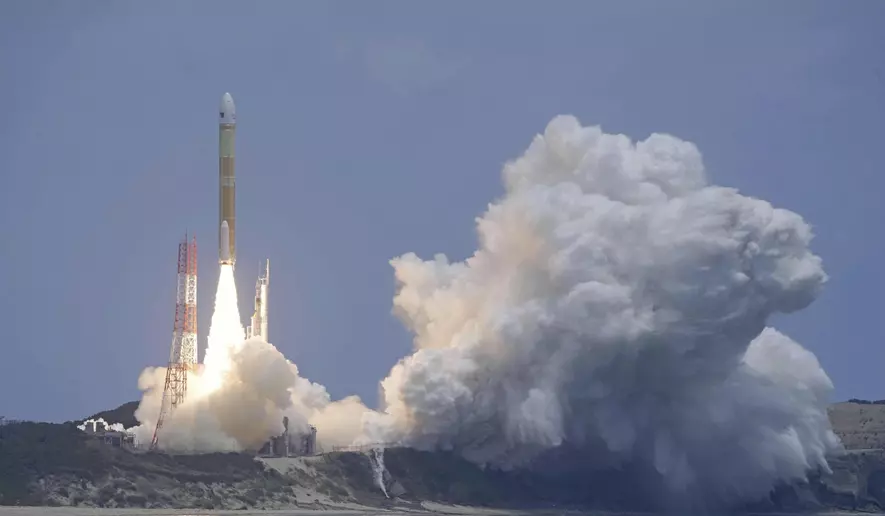Japan has successfully launched a defense satellite designed for improved military operations and communication aboard its new H3 rocket. This development comes as the country enhances its military capabilities in response to increasing tensions in the region.
The H3 No. 4 rocket lifted off from Tanegashima Space Center on a southwestern island of Japan, successfully placing the satellite into orbit as announced by the Japan Aerospace Exploration Agency (JAXA).
The satellite, known as Kirameki No. 3, utilizes X-band communication technology to facilitate information sharing and military operations. X-band satellites are less susceptible to weather conditions, ensuring stable communication. This satellite joins two earlier operational X-band satellites to address Japan’s expanding military communication needs.
Maj. Gen. Yasuhiro Kato, chief of the Joint Staff Systems Department, remarked that the new X-band communication system will enhance data transmission capabilities across Japan’s Ground, Maritime, and Air Self-Defense Forces and support units on international peacekeeping missions.
Kirameki No. 3 is expected to begin operations by the end of March after being positioned in a designated geostationary orbit and undergoing testing.
The launch had been initially scheduled for October 20 but faced four delays due to technical issues and adverse weather. Kato stated that these delays did not impact Japan’s security or defense activities.
JAXA President Hiroshi Yamakawa expressed relief at the successful delivery of the satellite, especially following the H3 system’s troubled debut last year, which concluded with the rocket being destroyed.
Japan views having a reliable and commercially competitive space transport capability as critical to both its space program and national security.
JAXA and Mitsubishi Heavy Industries (MHI), the primary contractor for the H3 launch system, have been working on this successor to the H-2A rocket, set to retire after one final flight. MHI aims to make H3 more commercially viable by significantly reducing launch costs and plans to conduct six launches per year.
MHI’s space segment chief, Iwao Igarashi, highlighted the reliable performance and on-time delivery of the Japanese rocket program while announcing multiple launch agreements with satellite operators from the U.K. and France, as well as the UAE space agency.
Credit: ABC News




